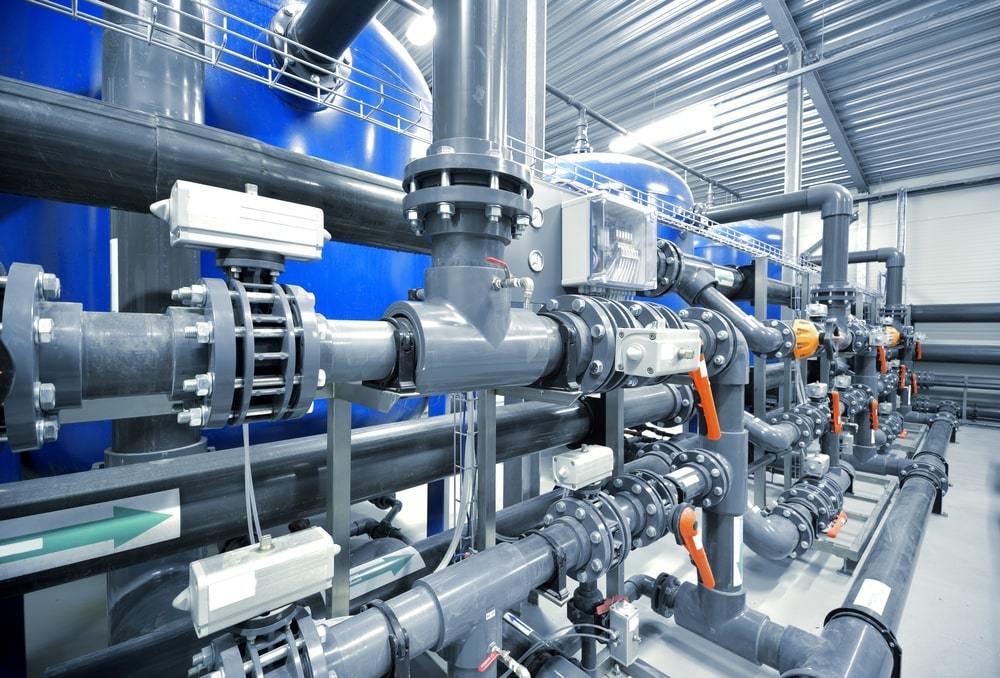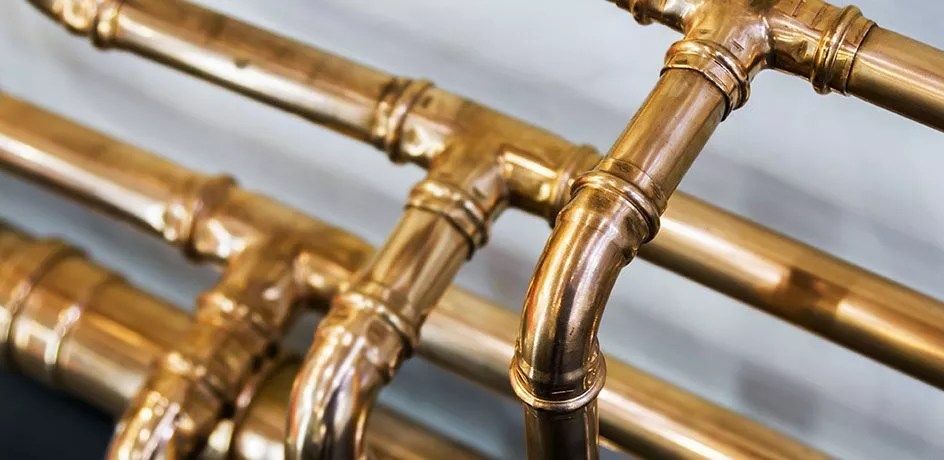If you’ve worked with plumbing at all, you’ve probably encountered the term “commercial plumbing.” You may not know much about it and that’s okay!
Commercial plumbing is a relatively new and specific type of plumbing installation. It isn’t just any old pipe and fixtures it requires specialized knowledge, tools, and skills.
What is Commercial Plumbing?
Commercial plumbing is the installation of piping, valves, and other equipment to transfer liquids, gas, or electricity within commercial buildings. This includes restaurants, stores, hospitals, and other types of large commercial properties.
So Why Is Commercial Plumbing so Special?
Commercial plumbing is different for a few reasons. First off, it usually requires higher levels of expertise and skill. Second, it’s usually much more complex than residential plumbing. Finally, commercial plumbing has special safety requirements.

Types of Commercial Plumbing
- Water supply
- Waste supply
- Drainage
- Water treatment
- Lightning protection
- Fire protection
- Electrical supply
- Natural gas supply
- Data/communication/power distribution
What’s the difference between residential and commercial plumbing?
- Commercial plumbing is designed to handle large quantities of water.
- The other differences between commercial and residential plumbing are mainly related to safety regulations.
- Commercial plumbing is more often required to be installed in a dedicated space, away from electrical panels and other sources of danger.
- Depending on the industry and building type, some commercial buildings require a more advanced fire protection system.
- Commercial buildings also sometimes require higher levels of water treatment.
Some experts say that commercial plumbing is permanent. Others argue it’s not.
- Permanent commercial plumbing is tricky. It often requires a dedicated space, away from electrical panels and other sources of danger. As it’s permanent, it’s often governed by much stricter safety regulations.
- Often, the installation of commercial piping is also connected to a construction project. If so, it can disappear with the demolition of the building.
Where to Find a Job in Commercial Plumbing
- There’s a huge demand for commercial plumbing. It’s a growing industry.
- You can find general job ads in construction-related publications or by searching online.
- Many local building owners, managers, or bosses of trades prefer hiring local people. So, chances are better that you’ll find a job through them.
- You can also approach companies that you think might need a commercial plumber.
Finding a Job as a Residential or Commercial Plumber
- There’s no special license required to become a residential or commercial plumber. You need to first become a licensed plumber. Then, you can take other licenses as required.
- Commercial plumbing jobs usually pay higher than residential jobs.
- The majority of residential plumbing jobs are usually only open to plumbers with a residential license.
- Plumbing jobs are usually advertised in local newspapers, online ads, or on plumbers’ bulletin boards.
- Some local building owners, managers, or tradespeople prefer hiring local people. So, chances are better that you’ll find a job through them.
- You can also approach companies that you think might need a commercial plumber.
Helpful Tips for New Recruiters Before You Start Interviews
- Get a feel for the type of people you’ll be working with.
- Talk to the owner/boss/manager of a tradesman you’d like to work for.
- Make sure you look both professional and clean.
- When you’re wearing a shirt and tie, be sure it’s clean and pressed.
- Get to know the boss/owner/manager/tradesman. Talk to them about things other than work. Talk to them about life.
- Get to know the rest of the team on the job.
- Try to see the job from the workers’ point of view. How would you like the job to run?
- Have you asked to see the job from the client’s/customer’s point of view?
- Who would you like to work for, who does the hiring?
- Have you asked to see the job from the client’s/customer’s point of view?
- Who are your customers? Try to find out as much as you can about them. What do they do? Where do they live?
Some experts say that commercial plumbing is permanent. Others argue it’s not.
It all depends on the type of project and the needs of the owner/manager/tradesman. Some commercial plumbing installations last only a few months, while others may last for years.
Permanent commercial piping may be required if there’s a long-term need for pumpings, such as a swimming pool or a water park. It may also be required if the property is going to be used for a long time, such as a school, hospital, or office building.
Where to find a job in commercial plumbing
- There are many ways to get a commercial plumbing job. One way is to ask around at the local building tradesmen’s association. Another way is to approach commercial plumbing companies. You can find contact details for these in the local business directory.
- You can also try contacting a commercial plumbing recruiter. Many of these companies offer a free trial period, so you can test-drive their services before committing.
- You can also try finding a job on a website dedicated to connecting job seekers with employers. These websites are often run by commercial plumbing recruiters.
- You can also try posting your resume on job boards or websites. This can help you stand out from the crowd, as well as build your experience and skill set.
- If you can’t find a job through your local building tradesmen’s association, you may want to consider networking online. This can help you find new contacts and create a pipeline of jobs.
Bottom line
Commercial plumbing is a specific type of plumbing installation that involves the installation of piping, valves, and other equipment to transfer liquids, gas, or electricity within commercial buildings.
Commercial plumbing is usually more complex than residential plumbing and requires more extensive expertise and skill. It also has special safety requirements. Commercial plumbing usually requires a higher level of certification and is often considered to be permanent.




